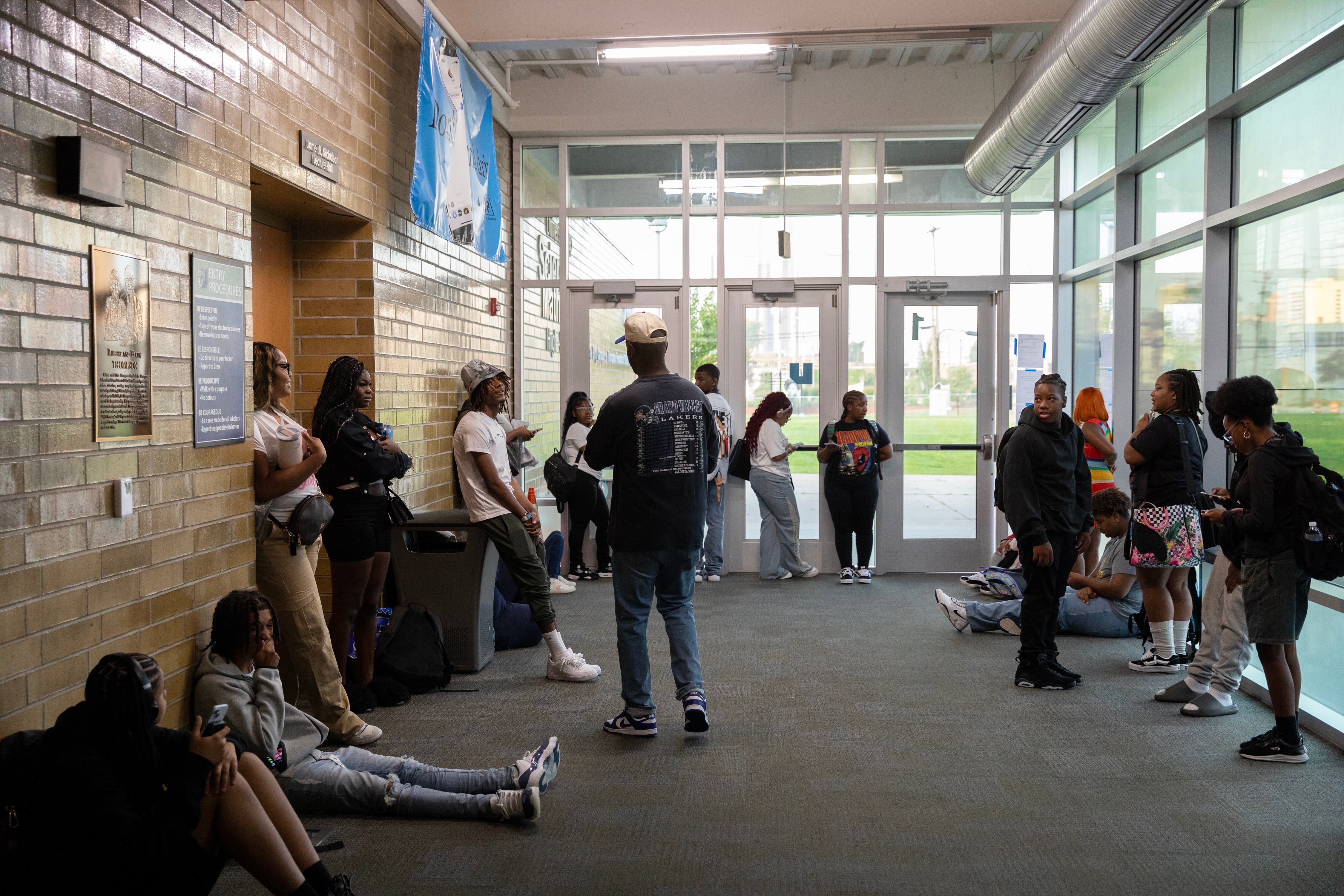This is republished as part of a series in collaboration with the Headway Election Challenge. Chalkbeat and Headway at The New York Times will ask young people to share their insights and perspectives throughout the 2024 presidential election.
A few years ago, Ishya Jain, a 17-year-old senior at Plano East Senior High School in Plano, Texas, noticed something unsettling.
“I was talking to a couple of my family friends during the pandemic, and we all basically had these very different views on what was actually going on, which was really surprising to me because facts are supposed to be something that we can all agree on,” Jain said. “But we all were kind of living in these alternate realities.”
Information targeted to young people and to the South Asian community had particular problems, Jain observed. To address those, she and her twin sister launched “The American Desi,” a radio show for the South Asian community in the Dallas-Fort Worth area.
“A lot of people from school actually have just organically discovered it,” she said.
Last week in the Headway Election Challenge, in collaboration with Chalkbeat, we asked teens how they’re informing themselves and others about the presidential election. The overriding theme of their responses was how challenging it is to navigate a world flooded with information yet lacking accessible, reliable facts.
Election news in one word
We asked teenagers to describe in one word the election news they were encountering. A few words — notably, “chaotic,” “confusing,” “interesting” and “informative” — popped up multiple times. Many used words like “misleading” and “stressful,” elaborating that the coverage seemed both overwhelming and often biased. Concerns about misinformation were clear, with mentions of conspiracy theories and sensationalism.
“Loaded.”
— Reilly Gogul, a 19-year-old college sophomore at the University of Cincinnati
“It just kind of feels like you can’t talk about anything,” Gogul said, “and you can’t have a headline without it being somehow charged with some sort of message, or a conversation turning into an argument.”
“Complex.”
— Zane Garza, a 18-year-old freshman at the University of Texas at Austin
“Access to accurate information about who the candidates are is becoming more and more convoluted,” Garza said, “which makes it difficult for people who will vote, and even just people who are paying attention.”
Where American teens say they get news
Teenagers regularly mentioned traditional media like CNN, NPR, and The New York Times as sources of news, but as you might expect, social media plays a moderate or significant role for at least half the respondents.
“Social media is a blessing and a curse,” Gogul said. “It has shown me some different opinions or perspectives that I wouldn’t have really thought to think about or recognize before.”
Jain had similar thoughts. “Social media has democratized access to information, but it has also contributed to this feeling of being overwhelmed,” she said. “So focusing on the issues that matter to you is important.”
Garza said that Instagram allowed him to gather information from various sources. Jain, on the other hand, said she had some problems with bite-size content. “It’s really patronizing to see a politician summarize this really, really complex issue into a 30-second video that’s just meant to get a lot of clicks and isn’t really meant to inform you,” she said.
Here are the biggest influences on young people’s politics
Many respondents said that conversations with their families and teachers were key influences on their political views. Garza credited his political science teacher for sparking his interest in politics, while Gogul often discusses the election with her mother.
“Her and I don’t agree on everything,” Gogul said, “but I know that she’s someone that I can go and ask a question about, and be like, ‘Hey, what is going on here? What does this mean?’”
Over the course of the challenge, we’ve heard from a number of teenagers that family conversations about the election can be fraught. And we’ve heard from both students and educators that the classroom can be even more challenging.
Gogul had some advice for teenagers struggling to stay informed: “Find someone who you trust and who you can confide in, and it doesn’t really matter if you share their beliefs or not,” she said. “It’s more of finding a way to get information, and the easiest way to do that is to have a conversation with someone face-to-face or over the phone.”
That brings us to this week’s challenge. The moments that stick with us from the 2024 presidential election will likely be a piece of news we read, heard, or watched, or perhaps an encounter with a friend, teacher, or politician. With that in mind, can you help us create a time capsule for this election year?
Week 3: What moments in the 2024 election do you want to remember?
To see other weeks, go back to the start of the challenge here.
Read more about the 2024 presidential election from Chalkbeat:
- Harris-Trump debate: No mention of K-12 schools amid fierce arguments over abortion, immigration
- A bigger child tax credit could help students a lot. Will Harris or Trump make it happen?
- Ending the U.S. Department of Education: What it would mean and why Trump and Project 2025 want it
- Kamala Harris is running for president again. Here’s what to know about her education record.
- In Tim Walz, many teachers see themselves — and an opportunity






